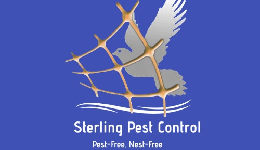Rodent Control

Rodent Control
Rodent control involves the prevention, detection, and elimination of rodents, such as rats and mice, to protect homes and businesses from damage and health risks. Effective rodent control includes identifying entry points, sealing gaps, and removing food sources that attract rodents. Trapping, baiting, and the use of rodenticides are common methods for eliminating existing infestations.
Health Risks:
Property Damage:
Food Contamination:
Behavioral Habits:
Common Types of Rodent
House Mouse
Small and agile, house mice are found worldwide and are notorious for invading homes and businesses. They are prolific breeders and can cause significant damage by gnawing on materials and contaminating food supplies.
Norway Rat
Also known as the brown rat or sewer rat, Norway rats are larger rodents that typically live in burrows or sewers. They are strong swimmers and climbers, capable of infesting homes, warehouses, and agricultural areas.
Roof Rat
Also called black rats or ship rats, roof rats are excellent climbers and are often found in attics, rafters, and upper levels of buildings. They prefer warmer climates and are particularly problematic in coastal and tropical regions.
Deer Mouse
Commonly found in rural and semi-rural areas, deer mice are carriers of hantavirus, a potentially deadly disease. They often enter homes in search of food and shelter, especially in the colder months.
Woodrat
Known as pack rats, woodrats build large nests out of sticks and other materials. They are typically found in rural areas and are less of a problem in urban settings, but they can cause damage to buildings, vehicles, and outdoor equipment.
Field Mouse
Often found in fields, gardens, and rural areas, field mice are small rodents that sometimes invade homes during colder months. They are known for their large eyes and ears, and while they primarily feed on seeds and insects, they can also cause damage to stored food and materials.
Why Rodent Control Is Essential
Health Risks:
Rodents are known carriers of various diseases, including Hantavirus, Salmonella, and Leptospirosis. Their presence can lead to serious health issues for you, your family, or your employees.
Property Damage:
Rodents are capable of chewing through electrical wiring, insulation, and even structural materials, which not only leads to costly repairs but also increases the risk of electrical fires, structural damage, and other safety hazards within your property..
Food Contamination:
Rodents frequently infiltrate kitchens and food storage areas, where they contaminate food with droppings, urine, and bacteria. This can lead to serious foodborne illnesses, property damage, and costly waste of your food supplies.
Why Choose Us?
Experienced Professionals:
Our team of certified technicians has extensive experience in rodent control, using the latest techniques and equipment to address infestations.
Safe & Humane Solutions:
We prioritize safety and humane treatment of animals, ensuring that our methods are both effective and responsible.
Satisfaction Guaranteed
We stand behind our services with a satisfaction guarantee, ensuring you get the results you need.
